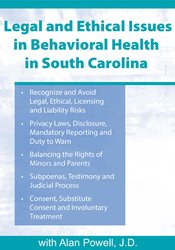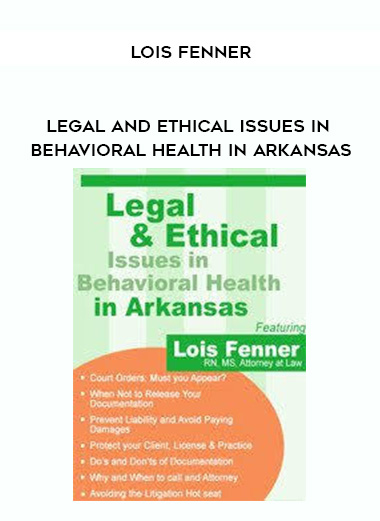LEGAL & ETHICAL ISSUES IN BEHAVIORAL HEALTH IN VIRGINIA -PATRICK J. HURD
Without the proper legal awareness needed to stay in compliance, you may face grave legal and financial consequences. This seminar will show you how to continue to help the people you’ve been trained to help while still protecting yourself from many legal pitfalls. If you attend only one seminar this year, make it this one.
Join attorney, Patrick J. Hurd, for an entertaining and enlightening recording and leave with a greater understanding of the latest Virginia laws as they relate to behavioral health. You will take home practical strategies to minimize and manage legal and ethical risks and you will learn how to immediately implement these risk-reducing strategies into your practice.
- Establish practices for ensuring HIPAA compliance to protect client’s privacy and minimize risk of litigation.
- Designate the treatment provider’s responsibilities relating to mental health issues and duty to warn law in Virginia.
- Explore the legal and ethical considerations for the treatment of minor populations in Virginia with regard to age of consent, confidentiality and custody concerns.
- Develop policies on issues such as boundaries, seclusions and informed consent.
- Compare the different requirements for responding to police inquiries, subpoenas and court orders for mental health records.
- Differentiate between the processes for voluntary and involuntary commitment for treatment and determine the clinician’s role in each.
- HIPAA/HI-TECH – Impact on Mental Health Providers
- Confdentiality of Mental Health Records
- The Duty to Warn in Virginia
- Balancing the Rights of Minors and Parents
- Professional Ethics & Boundary Issues
- Responding to Police Inquiries, Attorney Questions, and Subpoenas
- ECOs, TDOs, and Involuntary Commitments in Virginia




